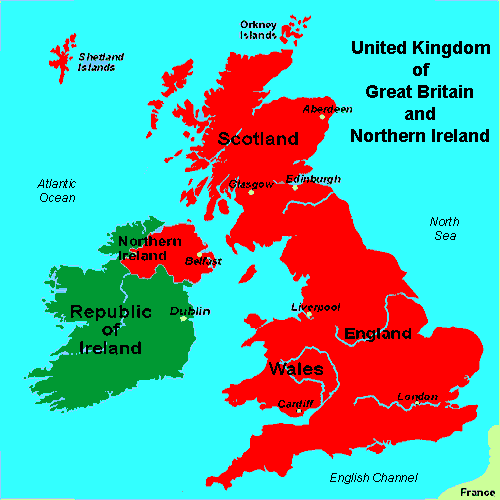International Relations
Violence in Northern Ireland (UK)
- 13 Apr 2021
- 6 min read
Why in News
Recently, Northern Ireland, the United Kingdom (UK) saw the worst violence in years. Parts of Northern Ireland are split along sectarian lines, 23 years after a peace deal largely ended Northern Ireland's troubles.
Key Points
- Historical Conflict:
- Geographically, Northern Ireland is part of Ireland. Politically, it’s part of the UK.
- Ireland, long dominated by the UK, broke free about 100 years ago after centuries of colonisation and an uneasy union. 26 of its 32 counties became an independent, Roman Catholic-majority country. 6 counties in the north, which have a Protestant majority, stayed British.
- Northern Ireland’s Catholic minority experienced discrimination in the Protestant-run state.
- In the 1960s, a Catholic civil rights movement demanded change, but faced a harsh response from the government and police.
- The British Army was deployed in 1969, initially to keep the peace.
- The situation deteriorated into a conflict between Irish republican militants who wanted to unite with the south, loyalist paramilitaries who sought to keep Northern Ireland British, and UK troops.
- During three decades of conflict, more than 3,600 people, a majority of them civilians, were killed in bombings and shootings. Most were in Northern Ireland, though the Irish Republican Army also set off bombs in London and other British cities.
- Ending the Conflict:
- By the 1990s, after secret talks and with the help of diplomatic efforts by Ireland, Britain and the United States, the combatants reached a peace deal.
- The 1998 Good Friday accord saw the paramilitaries lay down their arms and established a Catholic-Protestant power-sharing government for Northern Ireland.
- The question of Northern Ireland’s ultimate status was deferred: it would remain British as long as that was the majority’s wish, but a future referendum on reunification was not ruled out.
- While the peace has largely endured, small Irish Republican Army splinter groups have mounted occasional attacks on security forces, and there have been outbreaks of sectarian street violence.
- The power-sharing arrangement has had periods of success and failure and still the government is not trusted by both the sides.
- Problem Child of Brexit:
- Northern Ireland has been called the “problem child” of Brexit, the UK’s divorce from the European Union (EU).
- As the only part of the UK that has a border with an EU nation, Ireland, it was the trickiest issue to resolve after Britain voted narrowly in 2016 to leave the 27-nation bloc.
- An open Irish border, over which people and goods flow freely, underpins the peace process, allowing people in Northern Ireland to feel at home in both Ireland and the UK.
- The insistence of Britain’s government on a “hard Brexit” that took the country out of the EU’s economic order meant the creation of new barriers and checks on trade.
- Both Britain and the EU agreed that the border could not be in Ireland because of the risk that would pose to the peace process. The alternative was to put it, metaphorically, in the Irish Sea between Northern Ireland and the rest of the UK.
- That arrangement has alarmed British unionists, who say it weakens Northern Ireland’s place in the UK and could bolster calls for Irish reunification.
- Reason for Current Violence:
- Brexit and Corona:
- Britain left the EU on 31st December and the new trade arrangements quickly became an irritant to Northern Ireland unionists who want to stay in the UK.
- Early trade glitches, exacerbated by the coronavirus pandemic, led to some empty supermarket shelves, fueling alarm.
- There was anger that British Prime Minister long insisted there would be no new checks on trade as a result of Brexit, had downplayed the scale of the changes wrought by leaving the EU.
- Identity Crisis:
- Some in Northern Ireland’s British loyalist community feel as if their identity is under threat. And many other loyalists believe that, de facto, Northern Ireland has ceased to be as much a part of the UK as it was.
- Brexit and Corona:







